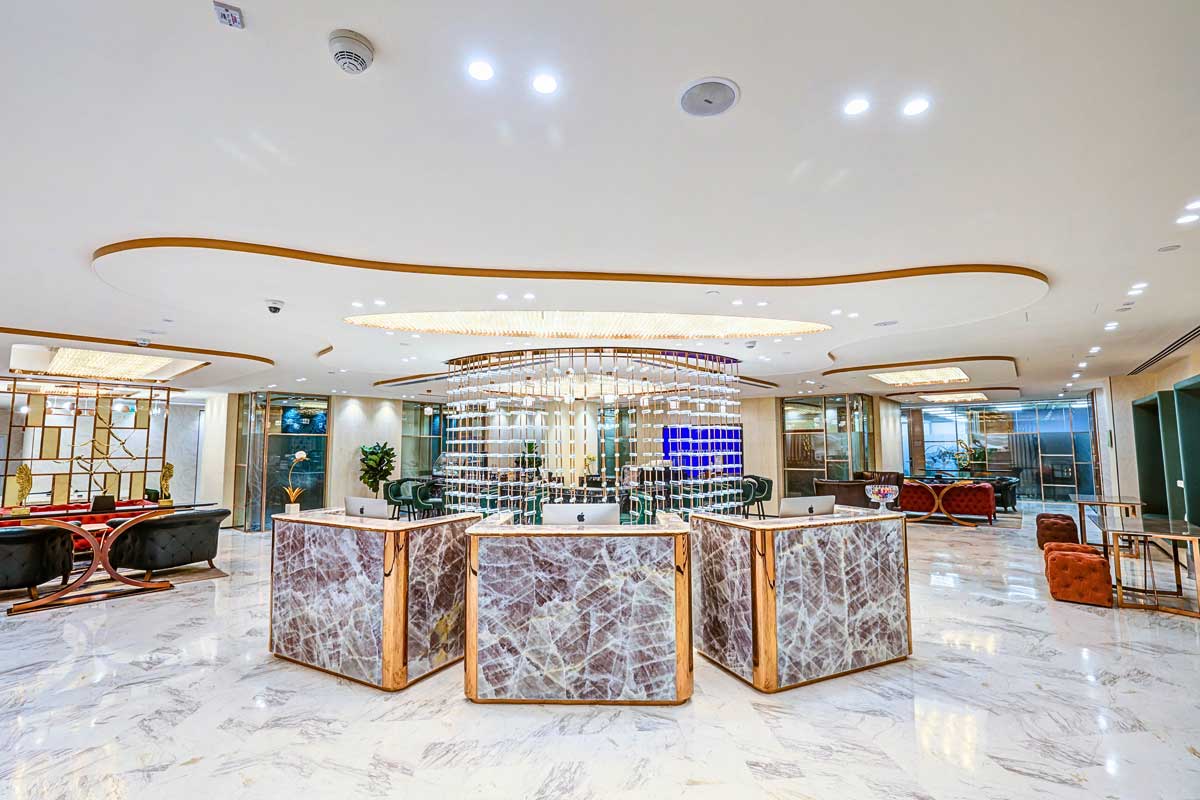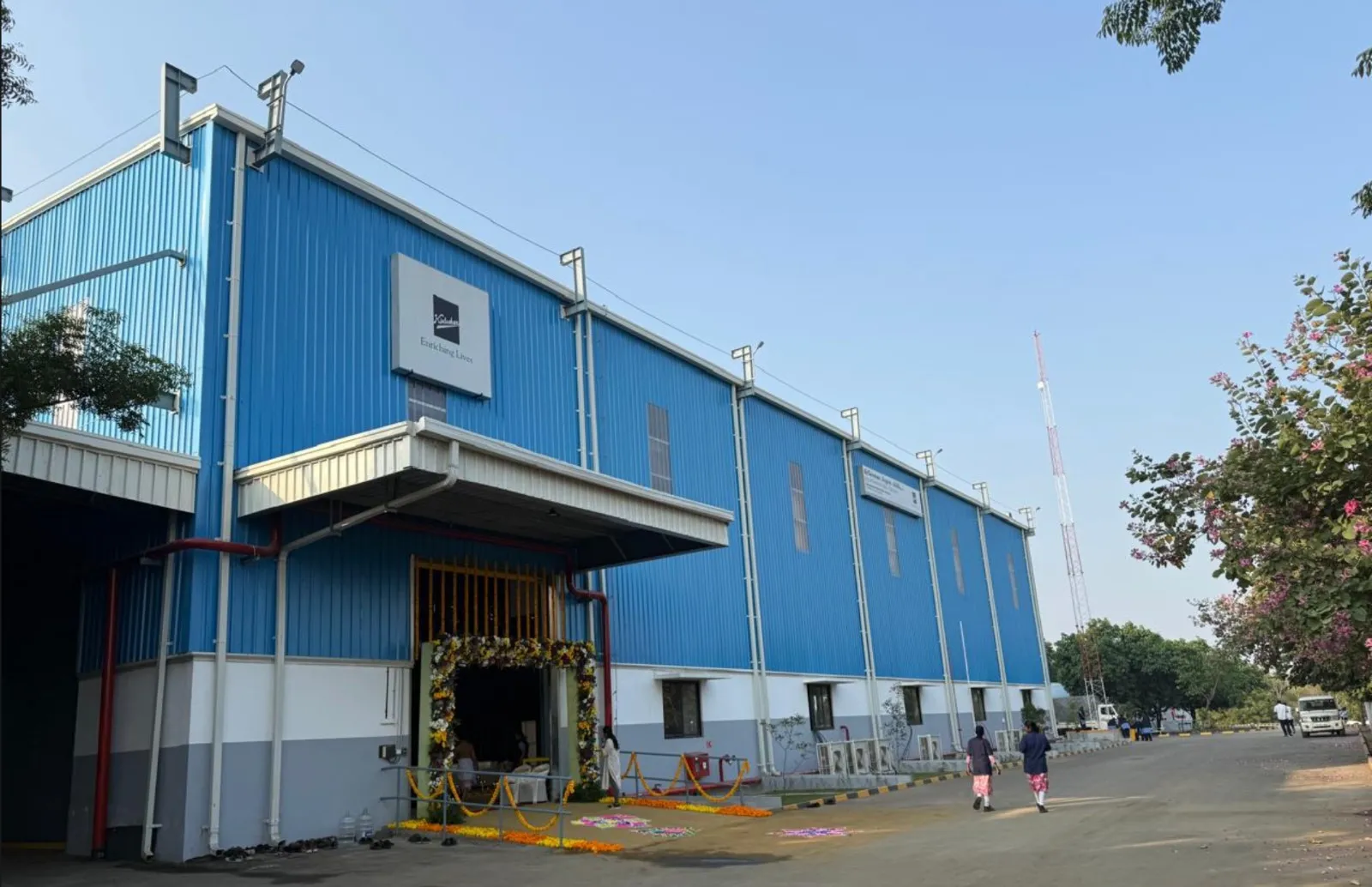CW explores why smart workplaces are the future of commercial real estate.
Imagine an office where a tech tool continuously monitors the energy consumed and sends out alerts if aberrations are identified; at the click of a button, the building switches from consuming energy from a renewable source to a non-renewable source, and vice-versa; employees are allocated workstations when they step in based on occupancy sensors; employees can temporarily take down partitions to work collaboratively on a project; touch-based sensors control entry to the premises; apps control entry to suites; boardroom gadgetry can be activated by voice commands; employees can order in from an app; the lighting and HVAC automatically switch on and off based on occupancy… and
much more.
This scenario isn’t from a sci-fi movie. Such offices exist across India. They’re called smart, essentially, because the buildings behave intelligently and are responsive to their occupants and the environment.
Smart offices stand significantly apart from conventional offices, “primarily owing to the infusion of technology and data-driven features but this distinction goes beyond technology,” explains Smirati Bhatnagar, Head, Design and Strategy, Design Forum International. CW explores the distinction between smart and traditional offices, the design as well as commercial aspects.
Smart design
Smartness in a building starts with being environmentally responsible and responsive, according to JP Agrawal, Director & Principal Architect, Agrawal
& Agrawal, the mastermind behind landmark smart buildings in Kolkata such as Infinity, Technopolis and Millenium City. “Most offices are centrally air-conditioned, within which the water-cooled system is the most efficient, the preferred option if the environment permits. HVAC is a power guzzler; so, here, smartness refers to the ability of the HVAC system to minimise the power consumed while ensuring the comfort of occupants by taking in sufficient fresh air.”
Next, smartness implies that the building encourages employees to come to the office. Agrawal says this covers natural lighting and openness and automation systems to control these and other aspects of the work environment.
“Leveraging technologies such as IoT, AI and automation streamlines processes, boosts productivity and allows the workforce to focus on strategic tasks,” adds Raman Sapru, Director - Design & Engineering, Mindspace Business Parks, and this, in turn, attracts talented employees to an office.
Design features that help occupants work more productively range from fenestrations that allow in natural light to social spaces that foster employee well-being, he adds. “At Mindspace Business Parks, we have practically seen the benefits of this method.”
Smart workplaces prioritise the creation of intuitive interfaces, comfortable environments and personalised customer experience to increase efficiency and employee contentment, explains Nidhi Marwah, Group Managing Director, South Asia & Middle East, The Executive Centre. “At The Executive Centre, we have a booking platform for members to easily block meeting rooms according to their requirements on our TEC App. We also have access points across all our common areas and amenities such as a private gym, mothers’ care room, wellness room, video gaming lounge, etc.”
Smartness also refers to the adaptability of the building, adds Agrawal. “When you design a large office, you often don’t know how each space will be used. So you have to design flexible spaces. Plug-and-play workspaces are becoming the norm for being
very flexible.”
Adaptability in a building implies that it can be repurposed to suit a variable number of occupants using it for varying purposes.
“We’re no longer designing offices just based on a random headcount. There’s a science to it; it’s called workplace strategy that involves factoring in peak occupancy and lowest occupancy into the design,” points out Deben Moza, Senior Executive Director, Head of Project Management Services, Knight Frank India.
Coming to the features of flexible workplaces, “instead of fixed, immovable furniture and partitions, adaptable smart offices incorporate modular elements,” adds Bhatnagar. “Modular furniture can be easily reconfigured and rearranged. Modular partitions are movable and can be adjusted to create various workspaces within the office. This design approach allows employees to tailor their work environment to specific tasks and requirements. The opportunity to personalise surroundings can boost employee morale, job satisfaction and overall well-being.”
Smartness also covers security, and entails designing three layers of security preferably without human intervention: at the entrance to
the premises, the entrance to the lobby and the office door, continues Agrawal.
Technology permeates all these design elements. In fact, in smart offices, advanced technology is blended seamlessly with deliberate aesthetics.
“Rather than concealing technology, smart offices celebrate it,” explains Bhatnagar. “Devices and sensors are integrated elegantly into the design, becoming part of the aesthetic appeal. For example, smart lighting fixtures become art installations and touchscreens blend seamlessly with sleek wall surfaces.”
Last, but not the least, intelligent office environments encompass more than just architectural design and interior aesthetics; they also extend to the overall campus layout, adds Moza. “There are a few MNCs that have designated areas where they cultivate vegetables for internal consumption as part of their holistic approach to smart workplaces.”
Sound business sense
Developing a smart workplace makes good business sense for future-oriented real-estate developers focusing on evolving tenant needs, says Bappaditya Basu, Chief Business Officer, ANAROCK Commercial. He reckons that smart workplaces can deliver around 15-20 per cent higher rental incomes and improve asset valuations by 10-12 per cent compared to conventional spaces owing to the value additions and flexibility they provide. Also, smart workplaces tend to enjoy higher occupancy rates.
Smart workplaces enjoy faster lease-up, longer-term leases, higher occupancy rates and reduced turnover, and often command premium rental rates, adds Peush Jain, Managing Director, Office Services, Colliers India.
“Smart workplaces certainly provide better returns than conventional office spaces as they are in high demand and sell out faster,” agrees Vineet Taing, CEO, Vatika Business Centre.
With the premium on developing a smart workplace standing at only around 3-5 per cent currently, the ROI on developing smart workplaces is very compelling,
says Basu.
Moza estimates that smart offices could cost 10-15 per cent more than regular offices with a three to five -year ROI period.
“Smart workplaces outperform their counterparts and this is exemplified by our green buildings achieving an impressive 20-25 per cent energy savings and 30-35 per cent reduction in water consumption,” adds Sapru.
While the economics favour going smart, Basu cautions developers to assess factors like target tenants, property lifespan and neighbourhood profile before committing to a smart workplace development. “The value proposition varies across project types and locations,” he says.
Who’s going smart?
Large corporations expanding their footprint prefer investing in efficient workplaces in view of the high costs involved in creating and operating offices, says Moza. “They invest in smart air-conditioning and manage the facility with a building management solution. Essentially, they look upon the entire building as a machine from which a certain output is required.”
In terms of sectors, Basu says: “Indian companies across sectors like IT and financial services and coworking operators are certainly looking to create next-gen, tech-enabled offices.”
Smart coworking spaces help companies and start-ups that are ESG conscious get the benefits of more sustainable and safe workplaces without making huge investments that they can’t afford, notes Moza.
“In times where work (and personal) lives are mostly technology-driven, we had a vision that our offices should be smart enough to match clients’ business needs,” says Taing. In terms of cities, he says, “Vatika Business Centre is seeing the most demand in Mumbai, Bengaluru and Pune because those are the biggest corporate hubs attracting Fortune 500 and multinational companies. Gurugram and Delhi are also big markets, followed by Hyderabad, Chennai and Noida.”
Good tidings
While interest in smart workplaces is rapidly growing in India, these are still in a nascent stage, according to Basu. However, he expects this market to grow at 25-30 per cent CAGR over the next five years as more Indian companies realise their benefits in terms of productivity, space utilisation and employee experience.
In particular, concepts driving the growth of smart offices such as hybrid work arrangements and flexibility have become increasingly popular after the pandemic. Also, “post-COVID, everyone is talking about how safe and sustainable buildings are for employees,” says Moza. “Buildings are now expected to integrate employees and factor their wellbeing into the design.”
Another driver is the role of overseas investments in real estate. “Nowadays, if you want foreign investment in a development project you have to show whether your development is environmentally sustainable,” continues Moza. “It’s called green funding; essentially, you must show that you are ESG-compliant.”
The trajectory is clear: smart workplaces are becoming the new standard in commercial real estate, a strategic move towards a future-proofed investment in today’s competitive real-estate market.





















